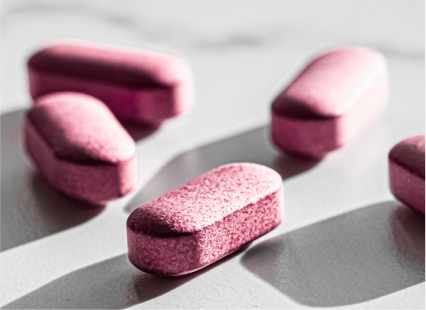According to the latest data from the National institute on Alcohol Abuse and Alcoholism, about one in five people who start drinking will develop Alcohol Use Disorder at some point in their lives. When a person tries to stop drinking, they can experience different withdrawal symptoms, some of which can be severe.
Experiencing temperature as part of withdrawal is common but significant enough for studies to address it as a separate issue. Alcohol withdrawal fever has been associated with a severe type of alcohol withdrawal known as delirium tremens (DT) and a condition that can occur during alcohol withdrawal named hypovolemia, that can be life-threatening.
Knowing what to expect during an alcohol withdrawal, how to prepare for it, and how to react to it can potentially save your life. We Level Up Lake Worth Florida has many years of experience in treating people struggling with alcohol addiction. We would like to share our knowledge on fever during alcohol withdrawal to help you overcome this specific symptom in your addiction recovery journey.
Skip to:
Common and Uncommon Alcohol Withdrawal Symptoms
It is estimated that about 50% of alcoholics experience withdrawal symptoms when they eventually stop drinking. The effects, albeit unpleasant, are often relatively mild. They tend to occur within 8 hours after the last drink but can occur even days later. Symptoms tend to peak within 24 to 72 hours but may go on for weeks. Some symptoms are pretty common, while others are considered rare.

Common symptoms include:
- Anxiety or nervousness
- Depression
- Fatigue
- Irritability
- Jumpiness or shakiness
- Mood swings
- Nightmares
- Not thinking clearly
Uncommon symptoms may include:
- Alcohol withdrawal fever
- Sweating, clammy skin
- Enlarged (dilated) pupils
- Headache
- Insomnia (sleeping difficulty)
- Loss of appetite
- Nausea and vomiting
- Pallor
- Rapid heart rate
- Tremors of the hands or other body parts
Although it’s uncommon, fever during alcohol withdrawal can be a sign of a bigger problem that addiction treatment centers in Florida can successfully address.

What is Alcohol Withdrawal Fever?
Flushing skin, hot flashes, and increased sweating are common side effects of alcohol consumption (i.e., alcohol blankets) that pass once the alcohol has exited your system. The temperature-raising side effect associated with alcohol withdrawal, however, is not as harmless.
In the case of a fever during alcohol withdrawal, it does not serve the fever’s usual purpose of heating the body to kill bacteria. Instead, the fever is a result of a dramatic shift in brain and nervous system activity. Excessive drinking suppresses neurotransmitters and forces them to work in overdrive to continue functioning. When you suddenly cease drinking, your neurotransmitters can take a while to catch up, slow down, and return to normal. This in-between period where your body is working extra hard to overcome a substance that isn’t there is what causes withdrawal and, in particularly bad cases, alcohol withdrawal fever.
Alcohol withdrawal fever is one of the less commonly addressed symptoms of alcohol withdrawal. In most cases, fevers are low-grade (do not exceed 100 degrees Fahrenheit) and can be attributed to some sort of indirect infection or illness. A study shows that the majority of people going through alcohol withdrawal will experience this mild fever, but also that around 20% will have high-grade fever.

Get Your Life Back
Find Hope & Recovery. Get Safe Comfortable Detox, Addiction Rehab & Dual Diagnosis High-Quality Care.
Hotline (855) 459-2880The Cause of Alcohol Withdrawal Fever
As is the case with most nasty withdrawal effects, alcohol withdrawal fever is usually brought on by quitting a substance cold turkey. Withdrawal symptoms only occur when the body has developed physical dependence. When this happens, the neurochemistry of the brain has been permanently disrupted due to the brain not having functioned normally for quite some time.
Instances where a fever has no determinable cause and persists for an extended period of time can indicate that the alcohol detox process has taken a bad turn. This symptom is associated with the most severe type of withdrawal, commonly known as delirium tremens (DTs). This is more likely to happen in at-home detox conditions that also imply a lower probability of reacting adequately. This is only one of many reasons why those struggling with alcoholism should go for professional alcohol detox in Florida under medical supervision.
Understanding Delirium Tremens (DTs)
The most severe type of withdrawal syndrome is known as delirium tremens (DT). Long-term heavy drinkers have the highest risk of developing delirium tremens, which could land them in the emergency room. The likelihood of this occurring is, however, low. Only about 2% of alcohol withdrawals end up being this severe.
Signs and symptoms of delirium tremens include:
- alcohol withdrawal fever
- excessive sweating
- increased heart rate
- high blood pressure
- fast respirations
- seizures
- extreme confusion
- extreme agitation
- tactile hallucinations (e.g., having a sense of itching, burning, or numbness that isn’t actually occurring)
- auditory hallucinations (hearing sounds that don’t exist)
- visual hallucinations (seeing images that don’t exist)
The symptoms of DT may get rapidly worse and even be life-threatening: without a proper treatment up to 37% of people experiencing delirium tremens die from it. A person with delirium tremens needs to be hospitalized until the symptoms can be put under control.
Although delirium tremens can´t be predicted, there are some factors that make people more prone to developing it. Risk factors for DT include the following:
- a history of DT
- prior history of seizures
- the presence of concurrent illness with associated comorbidities
- prior history of detoxification
- the prolonged period prior to the last drink
Research also shows there´s a relationship between PTSD and delirium tremens, with some studies showing that experiencing DT is a risk factor for developing PTSD. In contrast, others show that PTSD poses a risk for DT. In any case, the link between PTSD and alcohol is significant and should not be ignored.

Is Fever During Alcohol Withdrawal Dangerous?
Fever can be beneficial to a detoxing alcoholic by indicating a related illness, such as a kidney infection caused by dehydration. However, if an alcohol withdrawal-related fever persists for more than 72 hours, it is often considered a medical emergency. The danger does not actually lie with the fever itself, which is more of an accessory symptom, but because of the other symptoms that accompany alcohol withdrawal fever and delirium tremens, such as:
- Cardiovascular collapse
- Hallucinations (audial and visual)
- High blood pressure
- Extreme confusion and agitation
- Restlessness
- Insomnia
- Seizure
- Coma
Treatment for delirium tremens can take close to two weeks of hospitalization. It typically involves IV fluids to prevent dehydration and medication to treat seizures or other DT symptoms.
Preventive Measures and Home Care Tips
If you decide to detoxify on your own without professional help, you are at higher risk of experiencing fever during alcohol withdrawal. There are a few actions you can take to aid yourself, potentially prevent alcohol withdrawal fever, and manage it if it happens. Here are things you can do:
- Stay hydrated. Fever is known to dehydrate and weaken you. Ensuring you get sufficient liquids can prevent these problems. Whether it´s pure water or water enriched with vitamins and electrolytes, you are aiding your body in fighting alcohol withdrawal fever. You can also get liquids through food, like water-rich plants and soups.
- Monitor your symptoms. As mentioned before, the majority will experience light fever during alcohol withdrawal. However, it can quickly escalate, which is why vigilant monitoring of alcohol withdrawal symptoms is essential. This is something that professional staff can easily take care of, but if you are detoxifying on your own, be sure to monitor your symptoms continuously.
- Ensure a support system. No one should be going through alcohol withdrawal alone, as it can bring forth many symptoms, not only fever. Having support means you get both instrumental help and emotional aid when you need it, making withdrawal easier.
Although helpful, these tips might not be enough to successfully address fever during alcohol withdrawal and the accompanying signs of withdrawal. We encourage you to seek professional help and proper medical detox treatments that make the withdrawal experience safer and more comfortable. Medical staff can monitor your state, react swiftly, and prescribe medications to alleviate alcohol withdrawal fever as well as other withdrawal symptoms. Moreover, at We Level Up Lake Worth, it also means receiving psychological help that can help you overcome alcoholism long-term.

Fever and Alcohol Withdrawal: What To Do Next
If you are undergoing an alcohol detox and have experienced a fever for more than 72 hours, you need to seek medical help. High-grade or long-lasting fevers could be alcohol withdrawal fevers caused by dangerous delirium tremens. This condition isn’t something you should try to wait out by yourself. Search alcohol rehab near me online and find a suitable treatment center nearby and call immediate help.
We Level Up Lake Worth Florida can help you not only take care of your fever during alcohol withdrawal but also address your alcohol addiction problems. Contact us today and get all the information needed to make a well-informed decision about your health and recovery.
Start a New Life
Begin with a free call to an addiction & behavioral health treatment advisor. Learn more about our dual-diagnosis programs. The We Level Up treatment center network delivers recovery programs that vary by each treatment facility. Call to learn more.
- Personalized Care
- Caring Accountable Staff
- World-class Amenities
- Licensed & Accredited
- Renowned w/ 100s 5-Star Reviews
We’ll Call You
Sources:
Bramness, J.G., Pandey, S., Moe, J.S., Toft, H., Lien, L. and Bolstad, I. (2022). History of Delirium Tremens in AUD Patients in Treatment: Relationship to AUD Severity and Other Factors. Substance Abuse and Rehabilitation, Volume 13, pp.65–72. doi: https://doi.org/10.2147/sar.s361810.
Medlineplus.gov. (2023). Alcohol withdrawal: MedlinePlus Medical Encyclopedia. [online] Available at: https://medlineplus.gov/ency/article/000764.htm.
Rahman, A. and Paul, M. (2018). Delirium Tremens (DT). [online] Nih.gov. Available at: https://www.ncbi.nlm.nih.gov/books/NBK482134/.





